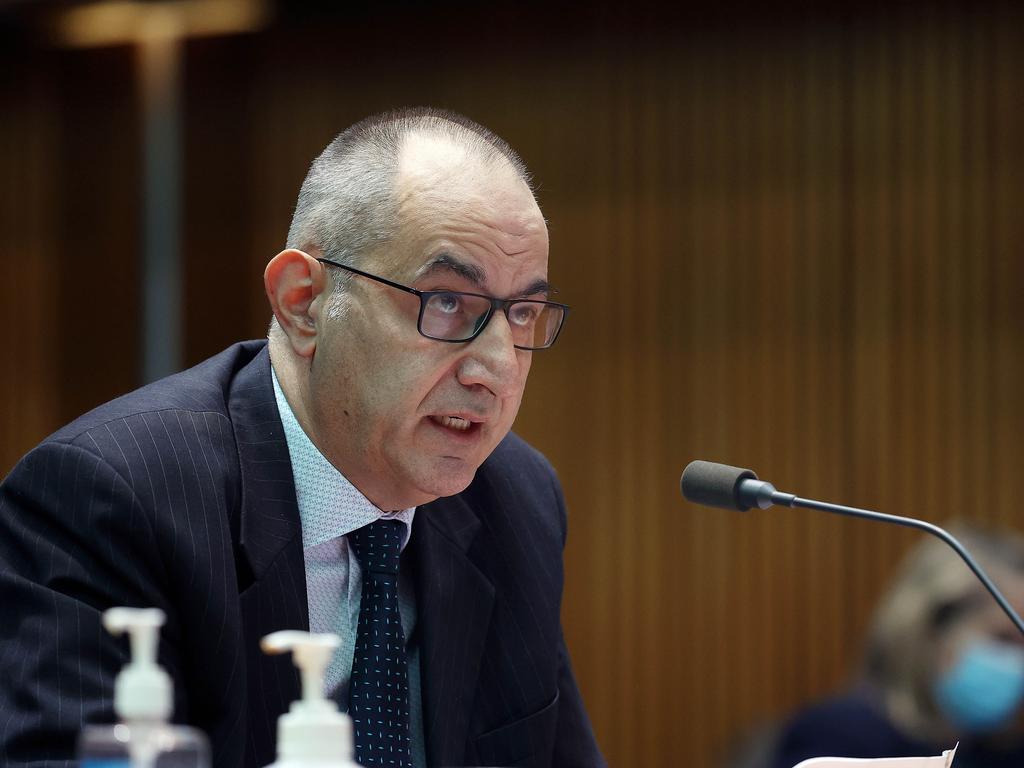I’ll make nuclear subs deal work: Marles
Defence Minister Richard Marles says Australia’s promised nuclear-powered submarines are ‘fundamental’ to the nation’s security.

Defence Minister Richard Marles says Australia’s promised nuclear-powered submarines are “fundamental” to the nation’s security, vowing to provide the necessary funding to “make this work” in a commitment that could drive Defence spending towards 3 per cent of GDP or more.
Mr Marles said the Albanese government was “completely committed to doing what is required” to deliver the promised eight nuclear submarines, which experts say could cost nearly twice the cost of the cancelled $90bn French boats.
“We are committed to the next generation of submarines, which are nuclear submarines. That is a decision we made in opposition and we understand the implication of that,” he said.
In his second week in the job, Mr Marles said his most urgent priority was bridging the nation’s looming submarine capability gap between the retirement of the Collins-class submarines from 2038, and the arrival of the first nuclear-powered boats.
He said he was “completely open-minded” about the potential options, declaring it was too early to be drawn on whether an interim “Son of Collins” or some other capability could plug the gap.
“It is the critical question. To be completely frank, I don’t have all the answers yet,” Mr Marles said. “What I know is … the capabilities that we develop in the future must be sovereign.”
He said former defence minister Peter Dutton’s assurances that the nuclear submarines would arrive from the late 2030s – eliminating the need for an interim capability – were “unsatisfactory”.
Mr Marles said the government was committed to the former government's $270bn investment pipeline and maintaining Defence spending at the 2 per cent of GDP benchmark.
But he would not rule out reprioritising program spending to deliver urgently needed capabilities. He declined to say whether the government would push ahead with planned tank and infantry fighting vehicle procurements, declaring he would “apply a critical eye” over the Defence investment plan to ensure it met the country’s strategic needs.
Labor backed nuclear-powered submarines when it was in opposition after being given only a day to contemplate its position before Scott Morrison announced the trilateral AUKUS plan to acquire them.
Mr Marles said the Albanese government remained absolutely committed to the next-generation subs, declaring them “fundamental to our national interests”.
The cost of delivering the AUKUS submarine program will be immense, with the Australian Strategic Policy Institute suggesting eight Australian-built nuclear boats could cost $117bn to $171bn, with extra regulatory and infrastructure costs potentially adding tens of billions of dollars to the bill.
Mr Marles said: “We have got to make this work.”
A day after the government revealed a Chinese fighter jet had aggressively challenged an RAAF surveillance aircraft in the South China Sea, Mr Marles said China’s assertiveness under Xi Jinping presented “very real, very present” security challenges for Australia.
He said Australia would address those challenges “by getting the hard power equation right” – something he said the former government had failed to do. “This is much less about chest beating than making sure you do the work to build our capability,” he said.
Mr Marles is receiving intensive briefings from Defence this week before heading to Singapore for the region’s premier defence summit, the Shangri-La Dialogue
He said he was not seeking a bilateral meeting at the event with Chinese counterpart General Wei Fenghe, who will also attend.
Mr Marles spoke to The Australian at Defence’s Russell headquarters, vowing to run his portfolio from the department wherever he was in Canberra and parliament wasn’t sitting.
In a first for a Defence Minister, he has set up his main Canberra office in Russell’s R1 building, on the same floor as Chief of the Defence Force Angus Campbell and Defence Secretary Greg Moriarty.
He told The Australian he believed he would avoid being “consumed” by the notoriously change-resistant department because of his five years’ “apprenticeship” as shadow defence minister
Mr Marles said he did not intend to commission a new Defence white paper, to update the last one done in 2016, declaring “I have a sense of what we need to do, and we don’t need a white paper to tell us that”.
“And I don’t want the resources of the department tied up in an exercise when I think what we need to do and where we need to go is pretty clear in my mind,” he said








To join the conversation, please log in. Don't have an account? Register
Join the conversation, you are commenting as Logout